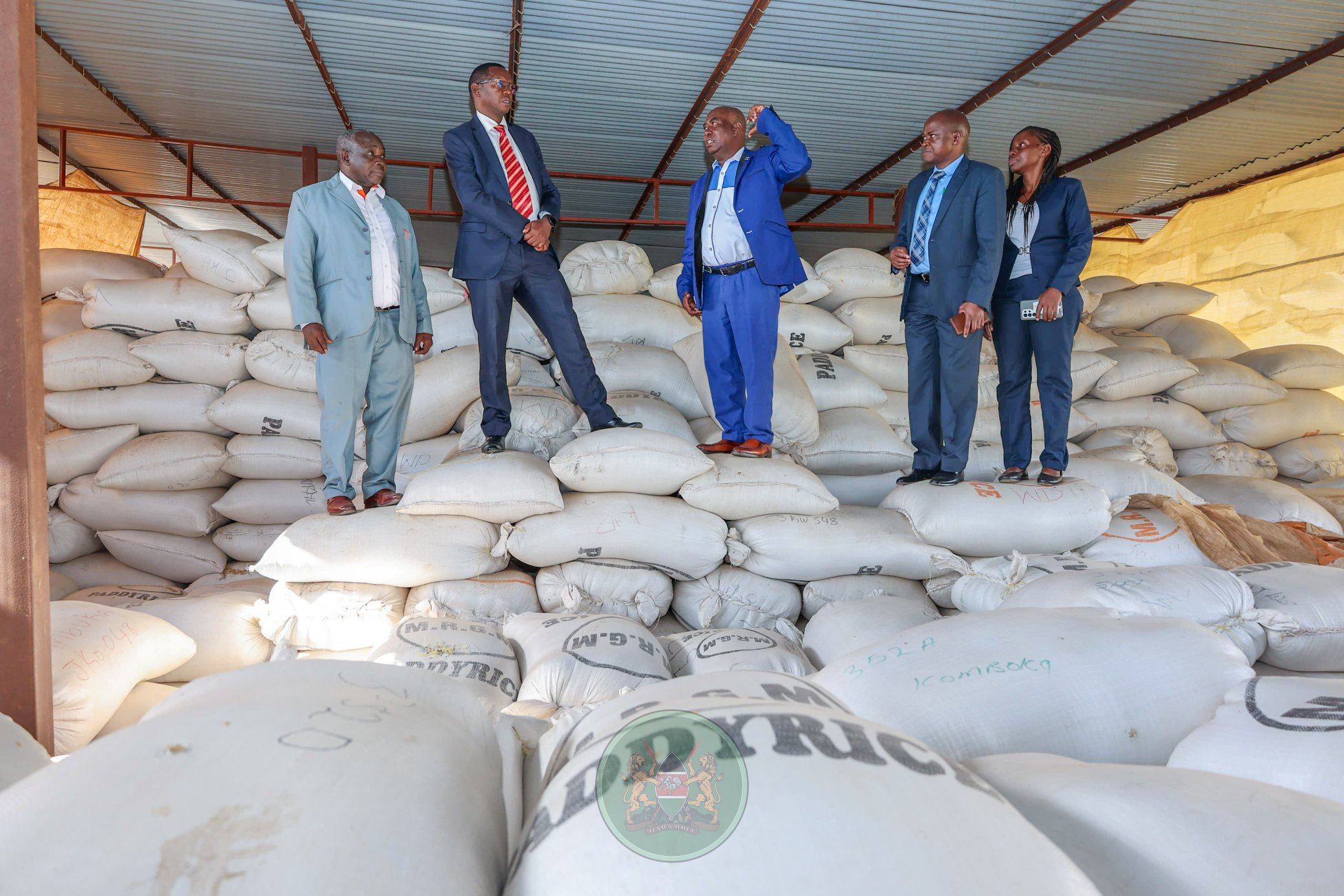Government to cut rice imports by half to shield local farmers

Agriculture and Food Authority Director-General Bruno Linyiru said the move follows pressure from over 8,500 rice farmers in Kirinyaga and neighbouring counties who want the government to prioritise locally grown rice before allowing further importation.
The government will cut rice imports by 50 per cent in a bid to support local farmers and ease pressure caused by cheap imports, even as Kenya grapples with a national deficit in rice production.
Agriculture and Food Authority Director-General Bruno Linyiru said the move follows pressure from over 8,500 rice farmers in Kirinyaga and neighbouring counties who want the government to prioritise locally grown rice before allowing further importation.
More To Read
- Trader sues to block duty-free rice imports over lack of public participation
- High Court suspends Sh15 billion rice tender over cancelled bids
- Maize, rice and wheat imports drop following bumper harvest
- High Court lifts rice import ban, cuts volume by half
- Kenya risks severe rice shortage, price hikes if duty-free imports are stopped, government warns
- High Court freezes Cabinet decision allowing importation of 500,000 tonnes of duty-free rice
“Going forward, AFA, in collaboration with the Ministry of Agriculture and other key stakeholders, is spearheading initiatives to reduce rice imports by 50 per cent,” said Dr Linyiru during a rice sector consultative meeting at the Mwea Rice Growers Multipurpose Cooperative Society offices in Kirinyaga, as reported by the Daily Nation.
Linyiru noted that although the government recognises the need for some importation due to the national shortfall, local producers must be protected. “The Ministry of Agriculture recognises the importance of supporting local production first,” he said.
Kenya's annual rice consumption continues to rise, with the monthly requirement currently standing at 100,000 tonnes. However, during the 2024/2025 season, the country produced only 191,000 tonnes of milled rice—barely enough to last two months.
“This can only last for two months because the monthly requirement is 100,000 metric tonnes. The shortfall necessitates importation,” Linyiru said.
Local rice sells for about Sh160 per kilogramme, while imported rice, largely from Pakistan and India, retails at about Sh80 per kilogramme, excluding importation and transport costs.
This price difference has placed local farmers at a disadvantage and led to stockpiles of unsold rice.
To ease this burden, the Kenya National Trading Corporation (KNTC) will buy over 5,000 tonnes of locally grown rice worth around Sh500 million.
Linyiru said the cooperative will receive full payment within a month of delivery, a major relief to farmers who have long struggled with delayed payments that disrupt their operations.
The Mwea irrigation scheme, which is located about 100 kilometres north of Nairobi, remains the country’s biggest rice-producing region, accounting for about 113,000 tonnes annually from approximately 7,000 farmers.
The government is also banking on the expansion of irrigation schemes, an increase in the area under production, and the adoption of high-yield rice varieties to boost production and reduce reliance on imports.
Present at the Kirinyaga meeting were Food Crops Directorate Director Calistus Kundu, KNTC Managing Director Lucy Anangwe, the cooperative’s chairperson Ndege Muriuki, and Dr Linyiru.
Top Stories Today














































